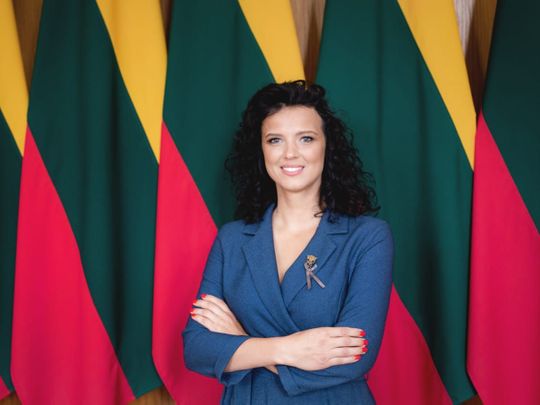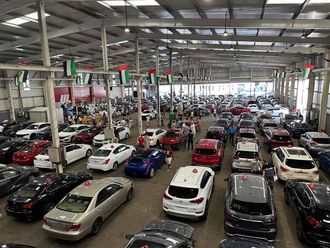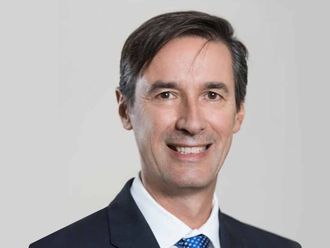
As the world faces the challenge of food security, countries are turning to local producers who could not only meet the country's individual needs but also contribute to the common goal of reducing world hunger.
Representatives of the Agrokoncernas Group from Lithuania visited Gulfood 2022, interested in various investment opportunities. As agricultural experts and leaders in Lithuania, they are looking for partners to cooperate with in dairy processing.
Lithuania, located in a particularly favourable natural area by the Baltic Sea, is one of the most important participants in the global grain market, exporting up to 5-6 million tons of grain annually. Strong positions in crop production help meet the needs of the livestock sector, as the cattle are provided with high-quality feed.
Milk purchased in Lithuania must contain at least 3.4% fat and 3% protein. To compare, the fat content of milk produced on the farms of Agrokoncernas Group, Lithuanian leader of the agricultural sector, is 4.2%, and the protein is 3.7%.
The company's farms currently produce up to 200 tons of milk per day. According to Alina Adomaitytė, Deputy General Director responsible for development, Agrokoncernas Group plans to build five modern robotic farms with 3,000 milking cows and 2-3 people working in each farm. It is estimated that the implementation of this project would lead to an additional 10% increase in milk production in Lithuania, i.e., approximately 700 tons per day.
According to Alina Adomaitytė, modern technologies are to be implemented in all farms. Special filters will trap unpleasant odours, and lasers will examine the quality of milk as well as the health of the cows. Biomethane gas plants processing cattle manure will be built near the farms.
“Such farms have enough manure to make biomethane production efficient. In this way, we will protect nature from CO2 and produce biogas, which can be used as automotive fuel or sold to the grid,” says Ms. Adomaitytė.
Most of the investment needed to implement the dairy farm project will be covered by a loan from a bank, and the rest will be funded by the company itself. Investors interested in the dairy business are also currently being sought.
“It is worth investing in the expansion of dairy farms, as this is a very promising area. Currently, there is a shortage of milk in milk processing plants, and it is likely that there will be a shortage in the future,” says the representative of Agrokoncernas Group.
Not only is there a shortage of milk, but its prices are rising sharply. For example, in February of this year, the purchase price of natural milk in Lithuania was 43.7% higher than it was at the same time last year. Lithuania has a very strong milk processing industry which can process much more than it does now.
The plans of Agrokoncernas Group include building a milk processing plant whose products would be sold worldwide. When planning investments, the company chose not only dairy but also grain processing as one of its strategic areas.
Adomaitytė adds that Agrokoncernas Group pays great attention to business synergy. This ensures continued growth and paves the way to being a leader in the agricultural sector.
“One of the most modern deep grain processing plants in the world that is currently being designed for our company will significantly contribute to the creation of added value of grain. We have been buying grain mainly for export until now, whereas after the construction of the plant, up to 95% of grain is to be used in processing. One of the planned products is animal feed. This is another example of how we put business synergy into practice.”
According to Adomaitytė, the group’s investments in farm development will significantly increase the amount of processed milk, while deep grain processing will help create added value not only for the company, but also for its partners.
Agrokoncernas Group is currently focusing on promising future projects to address food insecurity and ensure quality production.












